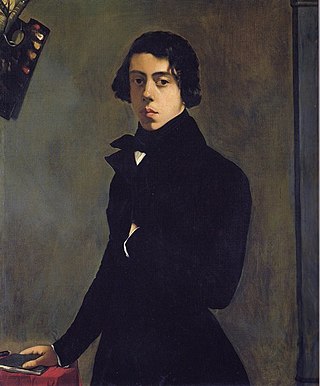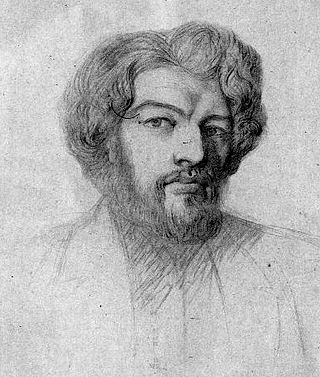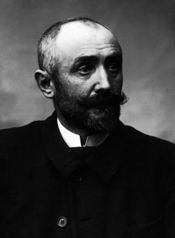
Maurice Orange, who was born in 1867 and died in 1916, was a French painter and artist.

Maurice Orange, who was born in 1867 and died in 1916, was a French painter and artist.
His youth was spent with his family and was influenced by the Franco-Prussian War. He showed an early talent for drawing and his first tutors gained him a scholarship to the École des Beaux-Arts in 1885, where he studied under Jean-Léon Gérôme and François Flameng. He was mainly inspired by historical subjects, especially the Napoleonic era, though he also produced portraits, landscapes, townscapes, and sketches, often adding drawings to his letters.
From 1887 to 1914, he took part in the Salon des Artistes Français, and won many medals and travel bursaries. Spain, Greece, Italy, Portugal, Africa, and Egypt became major influences on him. He worked in oils, watercolour, gouache, pastel, and charcoal. He died of typhoid fever in 1916.

Gerard David was an Early Netherlandish painter and manuscript illuminator known for his brilliant use of color. Only a bare outline of his life survives, although some facts are known. He may have been the Meester gheraet van brugghe who became a master of the Antwerp guild in 1515. He was very successful in his lifetime and probably ran two workshops, in Antwerp and Bruges. Like many painters of his period, his reputation diminished in the 17th century until he was rediscovered in the 19th century.

Gustave Moreau was a French artist and an important figure in the Symbolist movement. Jean Cassou called him "the Symbolist painter par excellence". He was an influential forerunner of symbolism in the visual arts in the 1860s, and at the height of the symbolist movement in the 1890s, he was among the most significant painters. Art historian Robert Delevoy wrote that Moreau "brought symbolist polyvalence to its highest point in Jupiter and Semele." He was a prolific artist who produced over 15,000 paintings, watercolors, and drawings. Moreau painted allegories and traditional biblical and mythological subjects favored by the fine art academies. J. K. Huysmans wrote, "Gustave Moreau has given new freshness to dreary old subjects by a talent both subtle and ample: he has taken myths worn out by the repetitions of centuries and expressed them in a language that is persuasive and lofty, mysterious and new." The female characters from the Bible and mythology that he so frequently depicted came to be regarded by many as the archetypical symbolist woman. His art fell from favor and received little attention in the early 20th century but, beginning in the 1960s and 70s, he has come to be considered among the most paramount of symbolist painters.

Odilon Redon was a French symbolist painter, printmaker, draughtsman and pastellist.

Émile-Jacques Ruhlmann, , was a French furniture designer and interior decorator, who was one of the most important figures in the Art Deco movement. His furniture featured sleek designs, expensive and exotic materials and extremely fine craftsmanship, and became a symbol of the luxury and modernity of Art Deco. It also produced a reaction from other designers and architects, such as Le Corbusier, who called for simpler, functional furniture.

Eugène Louis Boudin was one of the first French landscape painters to paint outdoors. Boudin was a marine painter, and expert in the rendering of all that goes upon the sea and along its shores. His pastels, summary and economic, garnered the splendid eulogy of Baudelaire; and Corot called him the "King of the skies".

Théodore Chassériau was a Dominican-born French Romantic painter noted for his portraits, historical and religious paintings, allegorical murals, and Orientalist images inspired by his travels to Algeria. Early in his career he painted in a Neoclassical style close to that of his teacher Jean-Auguste-Dominique Ingres, but in his later works he was strongly influenced by the Romantic style of Eugène Delacroix. He was a prolific draftsman, and made a suite of prints to illustrate Shakespeare's Othello. The portrait he painted at the age of 15 of Prosper Marilhat, makes Théodore Chassériau the youngest painter exhibited at the Louvre museum.

The Musée Rodin in Paris, France, is a museum that was opened in 1919, primarily dedicated to the works of the French sculptor Auguste Rodin. It has two sites: the Hôtel Biron and surrounding grounds in central Paris, as well as just outside Paris at Rodin's old home, the Villa des Brillants at Meudon, Hauts-de-Seine. The collection includes 6,600 sculptures, 8,000 drawings, 8,000 old photographs and 7,000 objets d'art. The museum receives 700,000 visitors annually.

Léon Joseph Florentin Bonnat was a French painter, Grand Officer of the Légion d'honneur and professor at the Ecole des Beaux Arts.

Marc-Aurèle de Foy Suzor-Coté was a French Canadian painter and sculptor. He was one of the first native-born Canadian artists whose works were directly influenced by French Impressionism and Post-Impressionism.

Bernard Buffet was a French painter, printmaker, and sculptor.

French art consists of the visual and plastic arts originating from the geographical area of France. Modern France was the main centre for the European art of the Upper Paleolithic, then left many megalithic monuments, and in the Iron Age many of the most impressive finds of early Celtic art. The Gallo-Roman period left a distinctive provincial style of sculpture, and the region around the modern Franco-German border led the empire in the mass production of finely decorated Ancient Roman pottery, which was exported to Italy and elsewhere on a large scale. With Merovingian art the story of French styles as a distinct and influential element in the wider development of the art of Christian Europe begins.

Albert Marquet was a French painter, associated with the Fauvist movement. He initially became one of the Fauve painters and a lifelong friend of Henri Matisse. Marquet subsequently painted in a more naturalistic style, primarily landscapes, but also several portraits and, between 1910 and 1914, several female nude paintings.

Anne-François-Louis Janmot was a French painter and poet.
Richard Guino was a French sculptor of Catalan origin.

Léopold Frédéric Léopoldowitsch Survage was a French painter of Finnish origin. Trained in Moscow, he identified with the Russian avant-garde before moving to Paris, where he shared a studio with Amedeo Modigliani and experimented with abstract movies. He also gained commissions for Serge Diaghilev's Ballets Russes.

Dominique Louis Féréol Papety was a French painter. He is best known for his canvases and drawings on Greek themes, both Classical and contemporary, and is considered an early member of the Neo-Grec movement.

Jacques Stella was a French painter, a leading exponent of the neoclassical style of Parisian Atticism.

Eugène Emmanuel Amaury Pineux Duval, better known by the pseudonym Amaury-Duval, was a French painter. He was one of two sons of Amaury Duval (1760–1838) and thus a nephew of the playwright Alexandre Pineux Duval.
Albert Dumouchel was a Canadian printmaker, painter and teacher. A multi-talented individual, Dumouchel also was a photographer and gifted musician. His work as an artist was largely abstract.

Henry Moret was a French Impressionist painter. He was one of the artists who associated with Paul Gauguin at Pont-Aven in Brittany. He is best known for his involvement in the Pont-Aven artist colony and his richly colored landscapes of coastal Brittany.